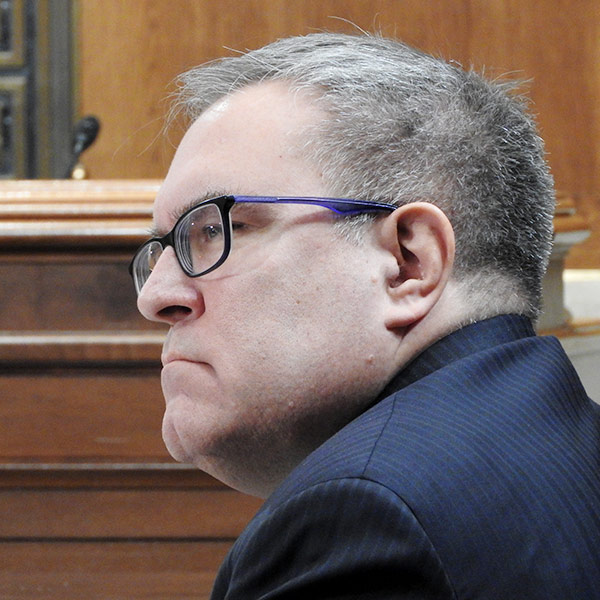By Christen Smith
Co-sponsorship memos supporting a plan to save Pennsylvania’s nuclear reactors began circulating through the state legislature this week as the window of opportunity to prevent facility closures dwindles.
The bipartisan proposal — born out of discussions within the state’s Nuclear Energy Caucus (NEC) last year — would add nuclear energy into the Alternative Energy Portfolio Standards (AEPS) Act. The 2004 law mandates electricity distributors boost usage of renewable or alternative energy sources to 18% by 2021. Nuclear generation supplied about 42% of the state’s net generation in 2017, compared with 4.5% for renewables, according to the U.S. Energy Information Administration.
State Sens. Ryan Aument (R-36) and John Yudichak (D-14) spearheaded the Senate version of the memo. Both lawmakers served as caucus co-chairs and oversaw a November 2018 report that concluded “allowing any nuclear plant in the Commonwealth to close would have significant consequences for fuel diversity, resiliency, the environment, customers, and the state’s economy.”
“Given our state’s prominence in energy production, it is important that lawmakers focus on an inclusive energy policy that promotes and respects the contribution that each resource offers. The NEC looks forward to continuing the dialogue with our colleagues in the General Assembly in the coming weeks and months,” Yudichak said last year. “But time is not on our side. Pennsylvanians — especially those whose livelihood depends on nuclear energy — are looking to us for action.”
Sponsoring legislators urged support from other members to thwart a projected $4.6 billion annual cost to taxpayers should the state’s five nuclear facilities deactivate — including $788 million in increased electricity rates, a $2 billion GDP loss, $1.6 billion carbon emissions-related increases and $260 million lost to managing harmful criteria air pollutants.
“Unless we address this inequity, Three Mile Island will shut down in October 2019, Beaver Valley will shut down in 2021, and the Commonwealth’s three other nuclear power plants are likely not far behind,” the memo said. “To be clear, this shutdown process is irreversible, thereby guaranteeing the permanent loss of Pennsylvania’s nuclear assets.”
A Controversial Rescue
Proponents of the measure — including Nuclear Powers PA — say nuclear energy deserves inclusion in AEPS because it provides 93% of the state’s zero-carbon electricity. Rescuing the state’s aging generators from decommissioning could likewise preserve up to 16,000 full-time jobs and $69 million in state tax revenues, they contend.
“These lawmakers are demonstrating tremendous vision and leadership by identifying an achievable legislative plan to reform AEPS and help address a fundamental flaw within the markets,” said Martin Williams, NPP co-chair and business manager of Boilermakers Local 13 in Philadelphia. “Pennsylvania is the second-largest nuclear power-producing state. We have been leaders in this industry for years, and so it’s encouraging to see our lawmakers matching that with their own leadership. Much work remains, but we are encouraged by this important step forward.”
Power generators, natural gas industry advocates and industrial electricity consumers argue nuclear generation companies, like Exelon, shouldn’t expect ratepayers to bail them out for failing to adjust to the competitive electricity market — particularly when cleaner and cheaper alternatives exist to fill the void.
“More efficient and affordable power generating resources have lowered energy costs and are providing a new lifeline to Pennsylvania’s manufacturers,” said Rod Williamson, executive director of Industrial Energy Consumers of Pennsylvania. “Now that Pennsylvania’s manufacturers are experiencing a competitive advantage based upon energy costs, we cannot afford subsidies to nuclear generation owners that will risk tens of thousands of good manufacturing jobs.”
“The competitive markets have worked really well here, and when you start interfering with those markets by picking winners and losers in Harrisburg, ultimately that’s not the system we should aspire to,” he said. “We should aspire to have a system where consumers are empowered to pick where their electricity comes from.”
Tony Iannelli, NPP co-chair and president and CEO of the Greater Lehigh Valley Chamber of Commerce, said correcting a faulty electricity market, preserving jobs and boosting air quality remain a “critically important effort.” Including nuclear energy in AEPS will add resilience to the power grid and prevent 37 million tons of carbon dioxide emissions annually, according to the legislative memo.
“Two of the state’s five plants have announced plans to close prematurely beginning later this year due to an imbalanced electric marketplace,” Iannelli said. “And the sad reality is that all five Pennsylvania nuclear plants are hindered in the current market environment and projected not to meet costs if this fundamental market flaw is not addressed.”
Exelon Behind a Similar Proposal Elsewhere
Exelon manages the largest nuclear fleet in the country, with 13 facilities nationwide and three in Pennsylvania alone. The company said last year its three main goals include ensuring fair compensation for resilient resources, addressing PJM’s identified price formation flaws and expanding zero-emission credit (ZEC) programs, like those seen in New York and Illinois. (See Exelon Confident in Nuclear Support Programs.) Illinois legislators passed the Future Energy Jobs bill in 2016, providing Exelon $235 million in ratepayer-funded zero-emission credits and keeping its Clinton and Quad Cities facilities operational for another decade. (See Illinois Lawmakers Clear Nuke Subsidy.) New York’s Public Service Commission created a ZEC program that same year as part of a plan to reduce greenhouse gas emissions by 40% by 2030. (See New York Attempts to Thread Legal Needle with Clean Energy Standard, Nuke Incentives.)
Paul Adams, Exelon’s senior manager of corporate communications, said updating Pennsylvania’s AEPS to include nuclear energy among the 16 other forms of renewable and alternative energy options detailed in the law makes sense on multiple fronts.
“The climate challenge is urgent and we must consider all energy options to accelerate our transition toward a low-carbon economy,” he said. “This is an important next step toward valuing the carbon-free energy that nuclear energy provides Pennsylvania. The loss of these plants would cost the Commonwealth $4.6 billion annually in the form of increased pollution, higher electricity prices to consumers, lost jobs and reduced economic activity.”




